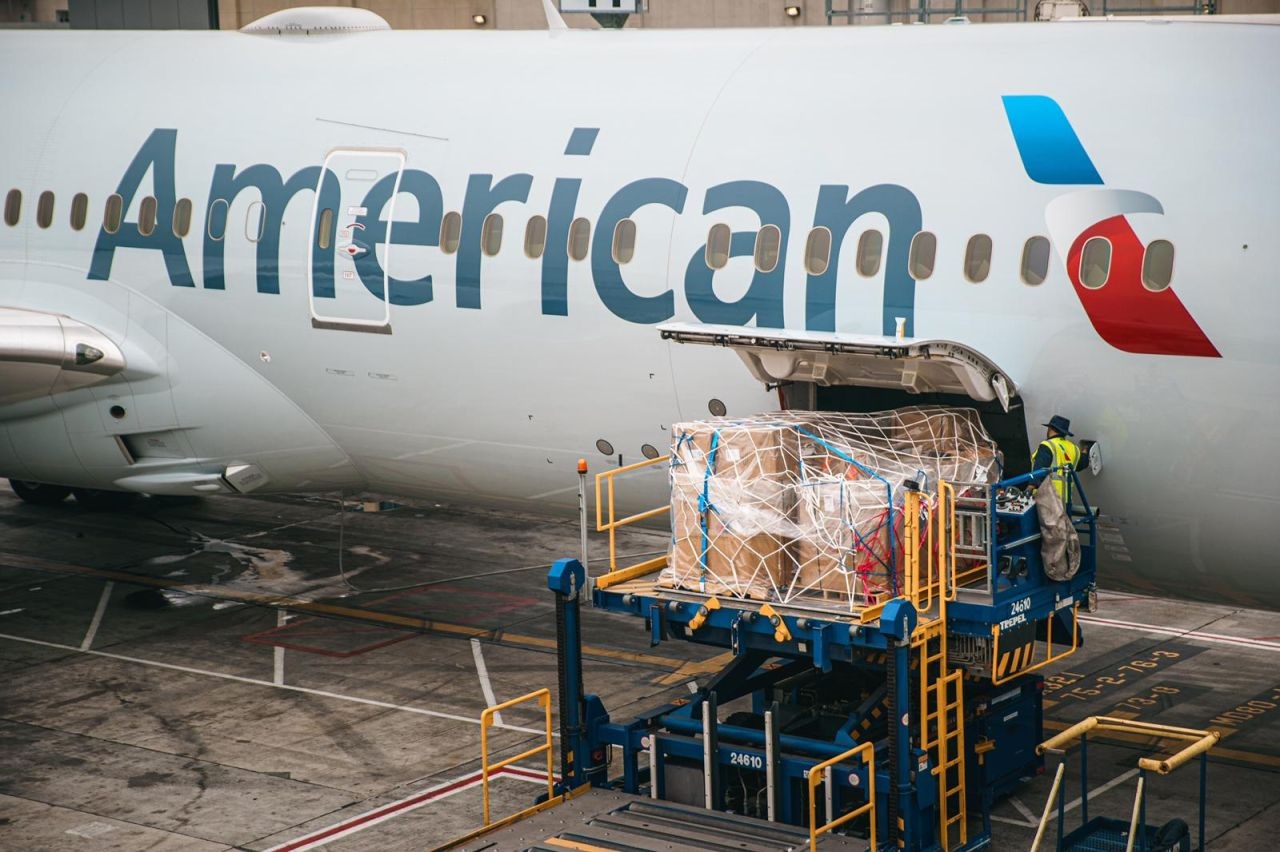Throughout the US presidential campaign, Chinese leaders never expressed their preference between Donald Trump and Kamala Harris. If the Democratic candidate had won, Beijing could hope that the US-Chinese trade conflicts would continue as usual. On the other hand, with the Republican elected official, clashes on the economic field are just as likely, but their form and intensity are difficult to predict.
This leads the Chinese government not to greet Donald Trump’s return to the White House with too much praise. The approach is rather to express congratulations imbued with politeness, while indicating rules of behavior that in Beijing, we would like to reinforce. Under these conditions, the terms of the Chinese reaction to Donald Trump’s victory were carefully prepared.
Subscribe for free to the Slate newsletter! Articles are selected for you, based on your interests, delivered to your inbox every day.
On November 6, spokesperson Mao Ning assured the daily press briefing of the Chinese Ministry of Foreign Affairs. To a question about the outcome of the US presidential election, she responds cautiously: “We respect the choice of the American people and congratulate Mr. Trump on his election as President of the United States.” Then, Mao Ning specifies that “China’s policy towards the United States is consistent”indicating that Beijing “considers and manages this relationship based on the principles of mutual respect, peaceful coexistence and win-win cooperation”.
At the same time, in Washington, during a dinner bringing together Chinese and American businessmen, the Chinese ambassador, Xie Feng, declared: “There are no winners in tariff or trade wars, nor in wars over science and technology or industries.” Xie Feng welcomes American companies investing in China, before noting that 60% of McDonald’s fast food stores outside the United States are installed in China and that Shanghai is the only big city in the world with more than 1,000 Starbucks coffees. “The more examples of mutually beneficial cooperation, the better”he concludes.
Xi Jinping, for his part, sends a message of congratulations to Donald Trump in which he urges China and the United States to “strengthen dialogue and communication, properly manage their differences and expand their mutually beneficial cooperation”. The president considers that “history teaches that the two countries gain from cooperating and lose from fighting” et “than a stable, healthy and lasting relationship” between them “serves the common interests of the two countries and responds to the aspiration of the international community”.
Changes in tone
The Chinese position towards Donald Trump is thus expressed. But, in Beijing, it is considered particularly difficult to understand the attitude of the re-elected American president towards China. At the very least, she is considered to have evolved greatly during her previous mandate. During his 2016 election campaign, he vigorously attacked China’s growing economic power. Then, after his victory, Xi Jinping comes to visit the United States in April 2017: he is invited to dinner in Florida, in the Mar-a-Lago villa. Trump then suddenly announced to him, during dessert, that American planes were bombing Syria, a country with which China had a friendly relationship.
In November 2017, a year after his election, the American president took a trip to Asia which led him to spend two days in Beijing. Xi Jinping and his wife show Donald and Melania Trump the immense palace of the Forbidden City. The billionaire does not hide his admiration for this vast monumental space and he asks his counterpart: “Is it true that Chinese civilization has 5,000 years of history?”
In 2018, Washington suddenly changed its tone and decided that the priority was to contain the rise of the Chinese economy.
During an official dinner, Donald Trump then advocates, between his country and China, a “new relationship between great powers” and talks about respect for “vital interests” of each. He cites Chinese commercial behavior as an example “able to gain an advantage over others” at the same time as he criticizes the Obama administration for failing to protect American citizens. An editorial in the People’s Daily, the newspaper of the Chinese Communist Party, believes that there are in these statements “a new type of relationship between great nations, without conflict or friction, respectful of each other, allowing cooperation beneficial to everyone, with the aim of protecting the stability of the world and its prosperity”. During this trip, many commercial contracts were signed by Chinese and American companies.
But the following year, in 2018, Washington abruptly changed its tone and decided that the priority for the United States was to contain the rise of the Chinese economy. A trade war has started with China. This is a tough time for Beijing, where the government is trying to understand the reason for the shift in American policy.
The economic and financial group of the Central Committee of the Communist Party and its Foreign Affairs office then invited several Chinese think tanks to work on the American attitude. These institutes specialize in economic and strategic research. Their belief is that a country cannot threaten a trading partner when the latter is larger than it. However, the Chinese market is larger than that of the United States. In addition, China exports thousands of products to the Americans, while the Americans only sell around a hundred products to China.
Chinese experts therefore believe that if the United States bans this or that Chinese export, it cannot affect the entire economy of their country. On the other hand, Chinese retaliatory measures could handicap the United States. For example, 70% of American soybean production depends on the Chinese market. If China closes the door, America will have nowhere to sell such a quantity of soybeans. In 2018, Beijing therefore concluded that the Americans, who won against the USSR then stopped the rise of Japan, want to do the same with China. But with globalization, the world is no longer the same, many Chinese economists insist.
Customs, Trump’s “favorite word”
It is likely that Chinese leaders are now wondering about the Donald Trump they will find at the head of the United States at the start of 2025. During his first term, customs duties on Chinese products imported into the United States ranged from 7.5% to 25% and had little reduction in the American trade deficit with China. For almost a year, Donald Trump has repeated that, if elected, he would focus on customs duties. On October 15, in front of the Chicago Economic Club, he proclaimed: “For me, the most beautiful word in the dictionary is “customs duty”. It’s my favorite word.”
His electoral program promises a general customs tariff of 10% on all global imports from the United States, with especially an increase on Chinese products of up to 60%, going up to 100% for electric vehicles. Such percentages can only reduce Chinese growth, this will lead Beijing to take retaliatory measures against the United States and, at the same time, to do everything to develop its exports to other markets, in particular the ‘Europe.
However, in the event of difficult relations with Donald Trump, Beijing may seek support from Elon Musk. He was present alongside the new president during his electoral campaign and obtained in exchange a ministrythat of “governmental efficiency”. However, Tesla, the businessman’s company which manufactures electric automobiles, generates a third of its turnover in China and has a gigantic factory in Shanghai.
Elon Musk does not hide his excellent relations both with Xi Jinping and with Prime Minister Li Qiang, whom he knew when the latter led the Communist Party in Shanghai. Hence, sometimes, a resolute approval of certain Chinese positions. In September 2023Elon Musk believed that, like Hawaii for the United States, the island of Taiwan was “an integral part of China” and that it could therefore have a status comparable to Hong Kong, a territory taken over by People’s China in 2020.
The case of Taiwan
Taiwan’s relationship with the United States could be changed by Donald Trump. On several occasions, Joe Biden has declared that in the event of an attack on Taiwan by China, the American army would intervene. Last July, when a journalist from Bloomberg Businessweek magazine asked Donald Trump if he would defend Taiwan in the event of war with China, he answers: “I know these people very well, I respect them a lot. They took about 100% of our microchip industry from us. I think Taiwan should pay us for its defense. You know, we’re no different than an insurance company. Taiwan gives us nothing.”
Donald Trump also attacks, during his campaign, the latest generation semiconductors produced 90% by the Taiwanese industry and among which are notably the chips of Apple smartphones or those thanks to which Nvidia is a leader in the field of artificial intelligence. To counter American annoyance with this manufacturing, the Taiwanese company TSMC (Taiwan Semiconductor Manufacturing Company) opened three factories in Arizona, fearing not to find workers there as qualified as in Taiwan. But, beyond that, there is a particular fear in Taipei that American support for Taiwan will become an element of negotiation with China for Donald Trump.
The relationship between the United States and China has been, for the most part, strained under President Joe Biden. He did not reverse the customs tariffs that Donald Trump had imposed on China, he even added them in the area of sensitive technologies. Currently, China is forced to step up economic recovery measures to try to get out of the difficulties into which the pandemic has plunged it and which are added to a sluggish real estate market.
Achieving detente on trade with the United States would be welcome for Beijing. But the causes of Sino-American disagreements could be renewed by the way in which Donald Trump will act. Between 2017 and 2020, he generally increased the pressure against a partner or an adversary, in order to arrive at a “deal” from a position of strength. This strategy could be tougher and more systematic from his new position in January 2025.


